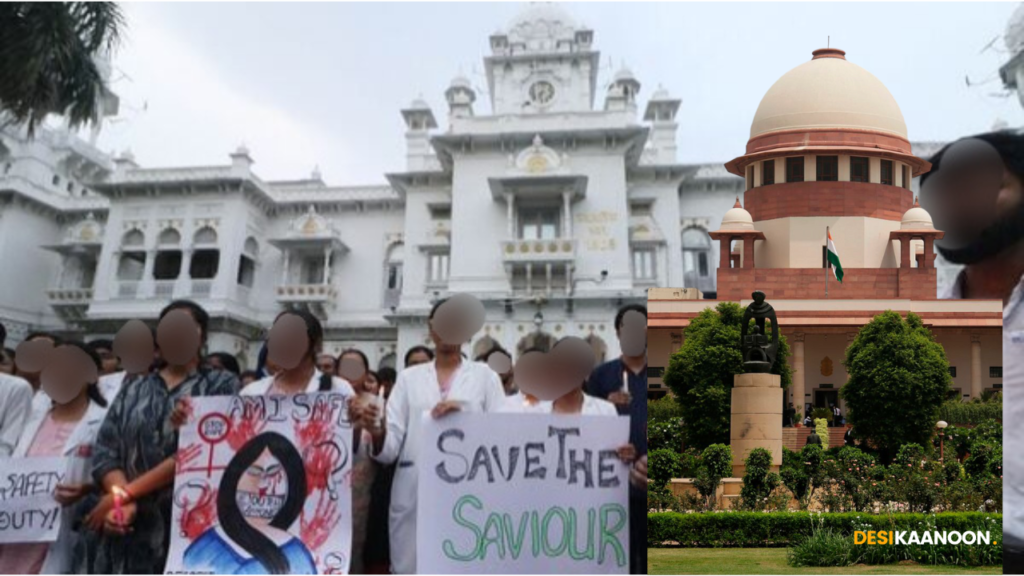Aastha Pareek
The role of civic police volunteers has become increasingly significant in maintaining public order and assisting regular law enforcement in many states. Their recruitment, duties, and regulation have raised important legal questions, particularly regarding transparency, legality, and accountability. One such critical case that brought these issues to the forefront is the Supreme Court’s judgment in the RG Kar Medical College and Hospital Civic Police Volunteer Recruitment case, which challenged the recruitment process of civic police volunteers in West Bengal.
The recruitment of civic police volunteers in West Bengal has been carried out under the purview of the state police, with these volunteers tasked to aid the police in various administrative and policing duties, such as managing traffic, assisting in maintaining law and order, and participating in public awareness campaigns. However, over time, concerns arose regarding the legality and fairness of the recruitment processes, including allegations of arbitrary appointments, lack of transparency, and political bias.
The RG Kar case revolved around the recruitment of civic volunteers in the state, focusing on the manner in which these individuals were selected, and whether the procedures adhered to constitutional principles of fairness, equality, and non-arbitrariness, as enshrined in Articles 14 and 16 of the Indian Constitution.
The Supreme Court in the RG Kar case analyzed the procedure followed by the authorities for the recruitment of civic police volunteers, placing a strong emphasis on the need for a regulated and transparent process. The key observations of the Court were as follows:
1. Arbitrary Recruitment Practices: The Court found that the recruitment process lacked a structured framework. There were no uniform guidelines issued by the state government to standardize the selection of volunteers, which opened the door to arbitrary appointments. This lack of a proper framework violated the principles of equality under Article 14 of the Constitution.
2. Absence of a Public Notification: In this particular case, it was noted that no public notification or advertisement was issued for the recruitment of civic police volunteers. This practice was criticized for undermining the opportunity for eligible candidates to apply and compete, thereby violating the mandate of fairness.
3. Political Influence: The Court observed that such recruitments, when conducted in a non-transparent manner, become susceptible to political influence, which can further undermine the integrity of law enforcement agencies. This could potentially erode public trust in the fairness of the recruitment process.
4. Role of Civic Volunteers: The Court also highlighted the essential distinction between regular police officers and civic volunteers. While the latter are intended to support regular police officers in non-core policing functions, they must not become a parallel policing force without appropriate checks and balances.
5. Accountability and Training: Another crucial aspect raised was the lack of proper training and accountability mechanisms for civic volunteers. The Court emphasized that these volunteers should not be treated as substitutes for trained police personnel and that they must operate within defined limits under the supervision of the police department.
Following the Supreme Court’s decision, several implications arise for both state authorities and civic police volunteers:
1. Structured Recruitment Processes: The judgment calls for the state government to formulate detailed guidelines for the recruitment of civic police volunteers, including provisions for public notifications, eligibility criteria, and a transparent selection process. This would ensure that the recruitment is merit-based and free from political interference.
2. Supervision and Regulation: The judgment reinforces the need for greater supervision of civic police volunteers, ensuring that they do not operate beyond their defined roles. A proper regulatory framework must be established to ensure their functions are clearly demarcated from regular police duties.
3. Training and Accountability: The Court’s decision stresses that civic volunteers must be adequately trained and held accountable for their actions. While they play an auxiliary role, they must operate with professionalism and be subject to the disciplinary standards applicable to public servants in comparable positions.
4. Equal Opportunity in Recruitment: By mandating public notifications and fair recruitment processes, the Court has safeguarded the right of eligible citizens to have equal access to employment opportunities, thus upholding the principles of equality and non-discrimination.
The Supreme Court’s decision in the RG Kar case serves as a critical legal precedent in addressing the concerns surrounding the recruitment of civic police volunteers in India. It ensures that the process adheres to constitutional principles of transparency, fairness, and accountability. Going forward, state governments must establish clear guidelines for recruitment and monitoring, balancing the need for additional law enforcement support with the imperative of upholding legal and constitutional norms. This judgment not only rectifies the specific issues present in West Bengal’s recruitment practices but also serves as a broader reminder of the importance of rule-based governance in maintaining public trust in law enforcement institutions.
Case Name: Re: Alleged Rape and Murder Incident of a Trainee Doctor in RG Kar Medical College and Hospital, Kolkata and Related Issue.
Case Number: Suo Motu Writ (Crl) No. 2/2024
Bench: Chief Justice D.Y. Chandrachud, Justices J.B. Pardiwala, and Manoj Misra

